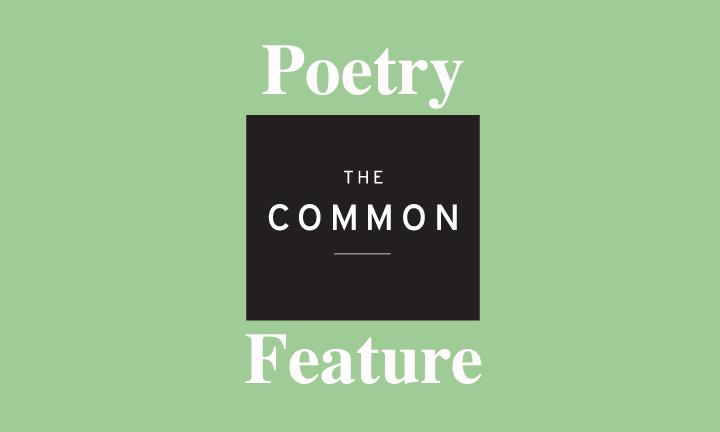In March we welcome three poets new to our pages; all three have work forthcoming in the print journal, as well.
Zero Slave Teeth
On the radio I hear about George Washington’s teeth.
A guest says what do you think his teeth were and a host
says wood. I’ve read about Waterloo teeth, how we prowled
battlefields, plucked teeth from young French corpses,
wired them up to make fresh rich people mouths.I figure we’re about to learn the founding father’s teeth
were from his soldiers. But it’s worse than that: slave teeth.
I post this on Facebook, asking what might the reparations
be for having your teeth pulled, having to see your teeth
every day in your owner’s stupid mouth. Melodie posts a comic
from The Oatmeal: this is old news, the slave teeth thing, also
that people LOSE THEIR MINDS denying it. She posts
the comic and we watch the losing of minds unfold.
He had a wooden tooth (teeth). . . zero slave teeth,
some stranger says, calls me stupid cunt on my dad’s page.
My DAD. Zero slave teeth. No innocents on death row. No
lynchings, not all men. Everybody crying rape, not all slave
owners were bad. Sally Hemmings? In love. Three hots
and a cot. Must be nice! FREEDOM FREEDOM USA!
Three-time Pushcart prize winner Jill McDonough is the recipient of Lannan, NEA, Cullman Center, and Stegner fellowships. Her most recent book is Reaper (Alice James, 2017); Here All Night, her fifth collection, is forthcoming from Alice James Books. She teaches in the MFA program at UMass-Boston and directs 24PearlStreet, the Fine Arts Work Center online.
The Home Makers
They ran in the night
three adults, three kids
What did you bring with you?
Potato sacks for warmth
Matches? No, no matches
nothing easier to spot
than a flame
The village burned. Inside them
pillars collapsed, bodies
got scorched, apples cooked
on tree branches. They knocked on
the first door they found
No one there seemed surprised
We were expecting you
Within the next few days
they looked for survivors
the teenage girl who ran by their house
a bullet lodged in her neck
yelling, hide!
the old man who happened to be sorting
potatoes in the cellar
Anyone else, I ask
Also a couple that went into the woods
to make love. Both men had families
little kids
Kids make it hard to escape
How do you explain to a baby
Stay quiet, you’ll get us all killed
They went back
First to bury the dead
Then for more mundane things
their kitchen garden, intact for the most part
the cellar with potatoes, jars
of jelly and moonshine, coarse peasant jewelry
buried in the yard
The beehives burnt down
The fruit trees were ruined
But the stone foundation, the water well
some iron tools from the shed –
those they could use
They moved back and started
making it a home again
The large brick oven endured
a blackened lung, the body that housed it gone
They started building walls to enclose it
Our home, it’s barely visible, their mother would say
walls and roof thin as a membrane
under an egg shell
But if you stay quiet
you will feel it forming
a soft explosion in slow motion
a rippling fire
ripping through your ribcage
folding you in
Oksana Maksymchuk writes and translates poetry. Her writing appeared in Words Without Borders, Poetry International, Modern Poetry in Translation, Los Angeles Review of Books, New Orleans Review, Salamander, Cimarron Review, and elsewhere. She won first place in the 2004 Richmond Lattimore and in 2014 Joseph Brodsky-Stephen Spender translation competitions. Most recently, she co-edited Words for War: New Poems from Ukraine (Academic Studies Press, 2017). Maksymchuk teaches philosophy at the University of Arkansas.
How
Today I’m your age when you first saw my careful chin,
my freckles in your Sunday school class,
when you took my hand from my father’s, tickled me.
Did I laugh then,
as you promised me your salvation?
Can you believe I still feel your fingers sear
the soft of my thigh when I sit in class, in church.
Do you believe I still go to church?
I’m sitting in bed where a woman has chosen to sleep
beside me, whom I’ve told I’m slow to kindle
within me what I would not have burn
so close to what you left.
Do you see her temple
rest against my leg? Listen, how cavernous
her breath, how vast we are,
how little room for anything else.
Watch how she touches me, the nail of her little finger
brushing my thigh.
How she absolves me of your sin.
Soon I’ll wake her. Soon her hands. Her lips.
I woke to write a bitter poem, but look, Peter, look where I am.
History of My Godlessness
Small one, holding a bull frog
in a Tennessee summer night,
how well you worship & despair—
your friends around you
listening to pop Christian music
& mystified beyond your reach.
Then the lightning bugs,
which you only knew
through books & movies, spring up
about you, a grist of doubt
& hum.
This is the scene:
the air thick & humid
settles like moss at your throat—
you lean back onto the asphalt
& set the frog above your head
like a crown. You can’t see the stars
for the thunderheads, but the bugs
descend like a righteous plague.
Your friends flee, fragments
of holy— holy— holy— skip
like rabid hares after them. Rejoice,
child, you could not have followed.
Lift your hands & receive this kingdom.
Be literal. Be devoured by light.
John Allen Taylor’s first chapbook, Unmonstrous, is forthcoming from YesYes Books in spring 2019. His poems are published in RHINO, Nashville Review, Muzzle, The Journal, Pleiades, and other places. He serves as Ploughshares’s senior poetry reader, he coordinates the writing center at the University of Michigan – Dearborn, and he brews very strong kombucha. Say hello @johna_taylor.




